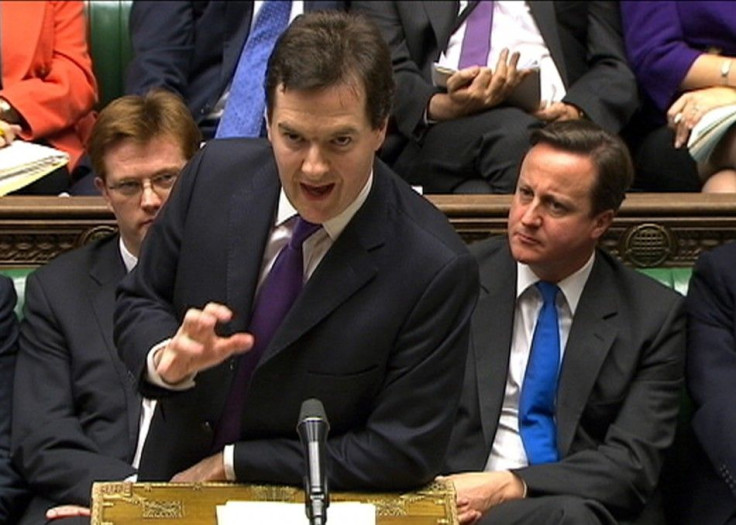British Unions Outraged by Plan to Cap Pay Increases for Public Workers

British labor unions have reacted with fury to an announcement by the Chancellor of the Exchequer George Osborne that pay increases for public sector employees will be capped at 1 percent for two years.
“For some workforces, the two-year pay freeze will be coming to an end next spring, for most during 2013,” Osborne told MPs in Parliament.
“In the current [economic] circumstances, the country cannot afford the 2 percent rise assumed by some government departments thereafter. So instead, we will set public sector pay awards at an average of 1 percent for each of the two years after the pay freeze ends.”
The salary cap would save more than £1-billion by the 2014-15, he claimed.
Osborne added: “Many are helped by pay progression -- the annual increases in salary grades that many people are entitled to, even when pay is frozen. It is one of the reasons why public sector pay has risen at twice the rate of private sector pay over the last four years. So while I accept that a 1 percent average rise is tough; it is also fair to those who work to pay the taxes that will fund it.”
The Chancellor’s announcement comes just one day before millions of public employees in Britain are set to strike.
Christine Blower, the general-secretary of the National Union of Teachers blasted the cap in pay hikes.
“Cutting pay and standards of living further, at a time when the government is asking them to pay 50 percent more for their pensions, will have a devastating impact,” she said, according to British media reports.
Similarly, Bob Crow, head of the Rail, Maritime and Transport union, told reporters: “George Osborne has ratcheted up the class war and has made it clear through his attack on pay and employment rights that he wants the workers to keep taking the hit while the rich get richer.”
Crow added: “After two years of a freeze, pay for millions of key workers will go up by one per cent in the next two years. With inflation over five per cent, and the increase in pension contributions, that means nurses and the others we rely on will be around 25 per cent worse off after four years of this [Coalition] Government while top bosses' pay goes up by 12 percent a year. That's a scandal.”
Another top union official, Dave Prentis, general secretary of Unison, said in a statement: “Our [economic] recovery is as nonexistent as the Chancellor's apparent understanding of economics.”
In addition, Osborne said, the number of public sector jobs to be cut over the next six years has been raised to 710,000 from 400,000.
In his speech on the state of the U.K. economy before members of Parliament – the so-called ‘Autumn Statement’ -- Osborne also warned that the recession in the Eurozone could spread to Britain, but that he would do everything in his power to address the deficit and keep interest rates low.
The Chancellor had even more gloomy news for British lawmakers.
Using forecasts from the independent Office for Budget Responsibility (OBR), Osborne told MPs that the UK economy will grow slower this year than previously thought – by 0.9 percent, down from the prior 1.7 percent estimate.
Even more alarming, GDP is expected to climb by only 0.7 percent in 2012, a sharp drop from the prior 2.5 percent forecast.
Osborne cited that effects of the Eurozone debt crisis as one of the principal factors behind the scaled back economic projections.
He also indicated that the government would have to borrow 127-billion pounds for 2011-2012 (5-billion higher than formerly thought). That figure is expected to ease to 120-billion pounds in the following fiscal year period.
OBR expected unemployment in the UK will rise to 8.7 percent next year, from the current 8.1 percent level, before easing to 6.2 percent by the year 2016.
Not surprisingly, Ed Balls, the Labour shadow Chancellor, also castigated Osborne.
Let's be clear what the OBR has told us today: Growth flatlining, down this year, next year and the year after,” he said in parliament.
“Unemployment rising, well over £100-billion more borrowing than the chancellor planned a year ago - more borrowing that the plan which the chancellor inherited at the last general election. As a result his economic and fiscal strategy is in tatters.
© Copyright IBTimes 2024. All rights reserved.





















